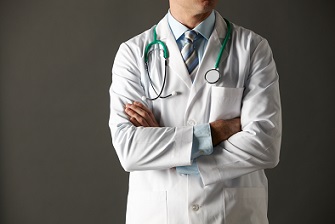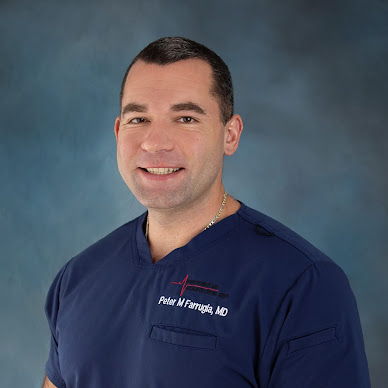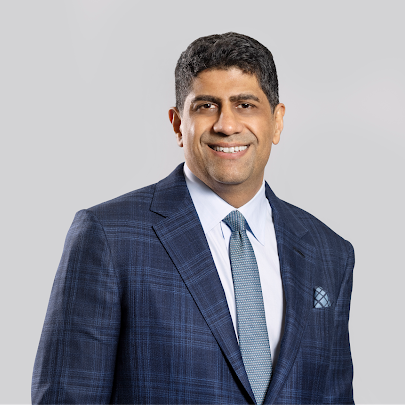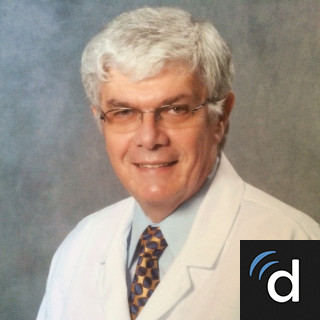Alan K. Tannenbaum, MD
Cardiologist | Interventional Cardiology
18 Centre Drive Suite 205 Monroe Township New Jersey, 08831About
Dr. Alan Tannenbaum is a cardiologist practicing in Monroe Township, New Jersey. Dr. Tannenbaum specializes in diagnosing, monitoring, and treating diseases or conditions of the heart and blood vessels and the cardiovascular system. These conditions include heart attacks, heart murmurs, coronary heart disease, and hypertension. Dr. Tannenbaum also practices preventative medicine, helping patients maintain a heart-healthy life.
Education and Training
Universidad Autónoma de Guadalajara medical degree 1973
Board Certification
American Board of Internal Medicine- Internal Medicine
Cardiovascular Diseases
Provider Details
Alan K. Tannenbaum, MD's Expert Contributions
Blood pressure and back pain?
Back pain and heart problems can be very dangerous. If the back pain is associated with chest discomfort and blood pressure changes an aortic aneurysm has to be ruled out. A cardiac CT scan should be done. Having said all that this may be nothing serious at all. Without examining you I can’t tell you definitively what this is. I would tell you to have your pressure checked in both arms to look for differences. Talk to your cardiologist about a CT scan READ MORE
Blood pressure?
Blood pressure varies with individuals. You don't say how high your pressure spiked, but normally a pressure of greater than 130-140/90 is considered to be elevated. This also depends on whether you are at rest or exercising. Also, blood pressure should be the lowest of the day when you wake up in the morning. Blood pressure may also vary if you have heart, kidney, or a variety of other chronic illnesses, or if you take certain medications, pressure may elevate or fall. A normal pressure may vary, however, it is considered below 140/90, at rest. Pressure should also be taken in both arms, as differences in pressure may indicate a problem. READ MORE
Extreme dizziness, higher BP and flushing of face?
Sir, You seem to be in very good physical condition, despite having had coronary artery disease. You don't say whether you smoked cigarettes or used alcohol. I presume you are not using these at present. The symptoms could be due to several different causes. Uncontrolled blood pressure can cause these problems. You were taking Losartan and now you're not. You may need a low-dose medication to control your BP. If your BP is elevated early in the AM, you may need something before bed time to control this. You don't say what your heart rate is normally, I would again presume it is low due to all the exercise you do. However, if it's high, a Beta blocker may help. Dizziness can be caused by numerous things as well. The room spinning around can be vertigo, usually BPV, benign positional vertigo. Good hydration can help, but sometimes medication is required. As the name suggests, changes in position can bring this on. There are more serious causes, like Carcinoid Syndrome, however, without a complete history and physical exam, it is difficult to give you a good answer. Lab work, including blood and urine tests might help. Your physician will know which tests to order. Try to document when symptoms occur, this will make it easier to determine a cause. You should also document anything that precipitates an event. READ MORE
if all my test rule out my heart and a clot in my lungs what could it be im still having major pains in my chest?
Assuming there was no trauma to your chest, this could be one of many things. I don't know if the pain is sharp or dull, but this could be pericarditis, which is an inflammation of the lining of the heart. This could be caused by a viral or bacterial infection, or trauma even slight, to the chest wall. Drugs can also cause this entity. I don't know what meds you take, but these should be checked. Pericardial pain is often sharp, getting worse with deep inspiration. It can radiate to the jaw and shoulder. With acute pericarditis there are usually ekg changes, however these may be absent. Aspirin, adult dose, usually helps the pain. The definitive treatment is colchicine tablets. You could also have chest wall pain, which can be caused by your asthma, or any pulmonary issue, as well as, trauma to the chest. Anti-inflammatory drugs usually help the pain, which is usually sharp in nature and localized to the area under the breast going toward the axillary area. The pain gets worse with movement. Muscle pain usually from strain, from coughing or trouble breathing, may also cause this pain. Using cold and heat packs might help. I'm not sure what the weakness in the extremities is from without examining you, however, some routine blood work might help. You could get a complete blood count, Sed rate, Cardiac enzymes, CMP. to start. A complete physical exam is indicated. There are other Rheumatic conditions like PMR, which need to be ruled out as well. READ MORE
Are you intubated for cardiac ablation?
Usually you are not intubated for an ablation. There is usually no reason to run the risks of general anesthesia for this procedure. There will be sedation but no intubation READ MORE
Can you feel a heart arrhythmia?
Sometimes you can. If the heart rate is fast, you may feel palpitations or lightheadedness. You can even have headache, nausea, or vomiting. If the heart rat is very slow, you can become dizzy and even pass out. READ MORE
Can you live with a 100 percent blocked artery?
You can live with a total occlusion depending on which artery is blocked. Usually when an artery occluded collateral circulation takes over. These are small vessels that take over the blood flow that was lost. However these arteries are much smaller than the occluded vessel and not as much blood is delivered to the heart muscle. If the occluded vessel was large symptoms of lack of oxygen will occur. If the vessel was small there may be few if any symptoms. Any vessel can cause heart muscle damage so even if you don’t die from the blockage the heart will not be normal. That is why blocked arteries should be fixed as soon as possible READ MORE
How do I stop heart palpitations after eating?
Cardiac palpitations are not uncommon after eating. The heart has to work harder during digestion because blood flow increases to the stomach and digestive tract. If palpitations are a problem, you can do several things. First, eat small meals, eat less sugar, avoid alcohol and tobacco. These are all factors which increase heart rate. If palpitations are occurring frequently, you should check with your physician. READ MORE
How long do you need to be on blood thinners after a heart stent?
After stent placement, anti-platelet medication is used. Usually, the medication is continued for one year. Medications such as Brilinta, or Plavix can be used. Aspirin, is also used with these other medications as well. The Aspirin is continued indefinitely. unless there are bleeding problems. READ MORE
Can garlic remove plaque from arteries?
There is only one study that I know of which showed that Aged Garlic Extract reduced soft plaque in arteries. This study had only 55 participants,so not much can be taken from it. And, all these people had cholesterol and triglyceride abnormalities. Garlic has been known to lower cholesterol levels. Also, plaque becomes calcified over time. There is no evidence that Garlic can remove this type of plaque. READ MORE
What procedure is used to clear a blocked artery?
The most common procedure is balloon angioplasty followed by stent placement READ MORE
How long does cardiac arrest last?
Cardiac arrest takes place when the heart stops and blood can no longer be circulated. The brain can be functioning until blood no longer reaches it. This takes about 3 minutes and can be as long as 5 minutes, after which there is brain death. Once that happens, even if circulation is restored, there will be no brain function. Therefore, circulation needs to be restored within 5 minutes. READ MORE
What heart problems cause cardiac arrest?
Almost any cardiac problem can cause an arrest if there is a problem with blood flow. The most common problems are heart attack, some abnormal cardiac rhythms like ventricular fibrillation. Some valvular problems like aortic or mitral stenosis. Other problems like trauma or aortic dissection can also cause an arrest READ MORE
Where is chest pain located for a heart attack?
Chest pain from a heart attack is typically located in center of chest and can be felt in left arm as well as the lower jaw. The pain is typically a heavy pressure. However these characteristics may vary depending on the location of the blocked artery READ MORE
How long do you need antibiotics for endocarditis?
The usual treatment time is about 6 weeks. It could be more, depending. READ MORE
What does exercise do to the heart?
Exercise is beneficial to the heart. It allows more blood to fill the arteries, and strengthens the heat muscle. Aerobic exercise is the best, however, any exercise can have benefits. Of course, we're speaking of a normal heart. People with heart problems need to adjust their exercise regimens depending on how serious the problem is, and a cardiologist should always be consulted. For a healthy individual, regular aerobic exercise done 3-5 times a week should be beneficial. Heart rate should increase with exercise; if it drops during exercise, this is a sign of a potentially serious problem. Never continue exercise if the heart rate drops, or if symptoms of chest pain, shortness of breath, dizziness, or continuous cough occurs. Always a good idea to have a good cardiovascular exam performed before starting an exercise program. READ MORE
Which arm is used for cardiac catheterization?
It really doesn't matter which arm is used. Usually, however, the right arm is used because it's somewhat easier to get into the arteries of the heart from that side. If there is a problem with the vessels of the arm, the one with the best access will be used. READ MORE
Can you live a long life with an irregular heartbeat?
You can live a normal life with an irregular heart beat depending on what it is. You need to get a complete exam to determine the origin and cause of the rhythm. Most are benign and cause no problems, but a few can cause serious problems. Get a complete physical with lab work. READ MORE
How can you avoid a heart attack?
The best you can do is to control all the risks. Keep an ideal weight, low cholesterol, control blood pressure, don’t smoke. Do these by exercising at least 3 times per week, stay away from a lot of foods with animal fat, and get checked to control abnormal blood pressure and cholesterol. The factor that can’t be controlled is positive family history. Always stay away from cigarettes. Get regular checkups. READ MORE
Does aspirin stop a heart attack?
Taking Aspirin during a heart attack, may inhibit progression of the attack. Heart attacks are caused by clotting in the coronary arteries. This is caused by platelet aggregation, or clumping. Aspirin is an anti platelet drug and can stop this process if given in time. As soon as symptoms of a heart attack are noted, then aspirin, at least 100mg should be taken if possible. READ MORE
Expert Publications
Data provided by the National Library of Medicine- Successful sealing of perforation of saphenous vein graft by coronary stent.
- Utility of ST segment depression in lead AVL in the diagnosis of right ventricular infarction.
- Verapamil in the treatment of maternal paroxysmal supraventricular tachycardia.
- Intracoronary streptokinase in acute myocardial infarction (a case study).
- A rare variant of single left coronary artery.
Areas of expertise and specialization
Faculty Titles & Positions
- Assistant Clinical Professor, University of Medicine and Dentistry of New Jersey -
Awards
- Who's Who Marquette
- Patients' Choice Award 2018
- On-Time Doctor Award 2018
- Compassionate Doctor Recognition 2018
Fellowships
- St. Francis Hospital Heart Center cardiovascular disease 1978
- Long Island Jewish Medical Center 1981
Alan K. Tannenbaum, MD's Practice location
Monroe Township, New Jersey 08831Get Direction
Alan K. Tannenbaum, MD's reviews
Write ReviewPatient Experience with Dr. Tannenbaum
Media Releases

Alan K. Tannenbaum, MD, a Cardiologist in Private Practice
January 11, 2022 Karen Johnson Edit
Get to know Cardiologist Dr. Alan K. Tannenbaum, who serves patients in Monroe Township, New Jersey.
A devoted cardiologist, Dr. Tannenbaum sees patients at his private practice in Monroe Township, New Jersey.
With a broad educational background, he graduated with his medical degree from the Universidad Autónoma de Guadalajara in 1973, and completed his internship and residency in internal medicine at the St. Francis Medical Center in 1975 He completed a fellowship in cardiovascular disease at the St. Francis Hospital Heart Center in 1978, followed by an additional fellowship at Long Island Jewish Medical Center in 1981. Finally, he was chief medical resident at Morristown Memorial Hospital with the Atlantic Health System in 1985.
Active in academia, Dr. Tannenbaum served as an Assistant Clinical Professor at the University of Medicine and Dentistry of New Jersey from 1987 -2010. He was the first cardiologist at Robert Wood Johnson University Hospital to implant a coronary stent. He was also the first cardiologist in New Jersey to perform a balloon Pericardial Window procedure to treat cardiac tamponade.
Cardiology is a branch of medicine that deals with the disorders of the heart, as well as some parts of the circulatory system. The field includes medical diagnosis and treatment of congenital heart defects, coronary artery disease, heart failure, valvular heart disease, and electrophysiology. Cardiologists are doctors who diagnose, assess, and treat patients with diseases and defects of the heart and blood vessels (the cardiovascular system).
Among his most notable achievements, Dr. Tannenbaum has been the recipient of the Patients’ Choice Award (2018), On-Time Doctor Award (2018), and Compassionate Doctor Recognition (2018).
Recommended Articles
- Using Losartan in Treating Hypertension
Unfortunately, there is an increasing prevalence of hypertension, which is the term used to indicate high blood pressure with a reading of 140/90 mm Hg or higher. It is being blamed on living a modern lifestyle, the frequency of alcohol and tobacco intake, certain physical activities, and processed...
- What Conditions Increase Your Risk of Congestive Heart Failure?
Heart failure, or congestive heart failure, is a chronic condition that indicates the inability of one’s heart to sufficiently fill with blood or distribute adequate amounts of blood to the entire body.Heart failure usually occurs in individuals with advancing age. However, anyone can develop the...
- Does Hypertension Have Warning Signs?
With modern life complexities becoming more evident, instances of lifestyle health conditions like hypertension have been on the rise. According a recent report, the number of people living with hypertension is estimated to reach 1.56 billion worldwide by the year 2025. In the US, more than 75% of...
- How is Congestive Heart Failure Diagnosed?
Congestive heart failure is known as a chronic condition where the heart fails to pump blood as well as it should. In the case of a heart failure, the doctor will use various methods to diagnose if you have had one. Want to know how they do it? Here are the basics:The diagnosis of any illness or...
- Can Sleep Apnea Cause an Irregular Heartbeat?
There are numerous people who complain about waking up with a fast-beating heart. While some think this isn’t anything to worry about, there are studies that link waking up with an irregular heartbeat to sleep apnea. Sleep apnea is a very common sleeping disorder that is very alarming. In fact,...
- Digoxin and Common Brands
Generic Name: DigoxinBrand Names: Cardoxin, Lanoxin, Digitek, LanoxicapsWhat is digoxin?Digoxin is derived from the digitalis plant leaves. It helps in making the heartbeat stronger along with a more regular rhythm pattern. Digoxin is mostly used for treating individuals who suffer from heart...
Nearby Providers
- Peter Farrugia M.D.340 Route 34 Colts Neck NJ 07722
- Ranjita Sengupta M.D.465 Union Avenue Bridgewater NJ 08807
- Ramzan Muhammad Zakir M.D.317 George St New Brunswick NJ 08901
- Tiberiu Kovacs M.D.4 Ethel Road Edison New Jersey 8817
- Gary Avendano465 Cranbury Rd East Brunswick New Jersey 08816
- Robert Joseph Schanzer1 Ethel Road Edison New Jersey 08817
Nearest Hospitals
CENTRASTATE MEDICAL CENTERl
901 WEST MAIN STREET FREEHOLD NJ 7728CHILDREN'S SPECIALIZED HOSPITALl
200 SOMERSET STREET NEW BRUNSWICK NJ 8901CENTRASTATE MEDICAL CENTERl
901 WEST MAIN STREET FREEHOLD NJ 7728CHILDREN'S SPECIALIZED HOSPITALl
200 SOMERSET STREET NEW BRUNSWICK NJ 8901CHILDREN'S SPECIALIZED HOSPITALl
200 SOMERSET STREET NEW BRUNSWICK NJ 8901SAINT PETER'S UNIVERSITY HOSPITALl
254 EASTON AVE NEW BRUNSWICK NJ 8901








